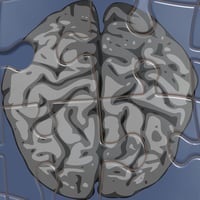Nadil/Shutterstock Young people who were forced to have sex before age 16 were 10 times more likely...
Study Challenges Conventional Theories About Link Between Child Abuse, Cognitive Deficits
 |
The findings suggest that the relationship between early victimization and cognitive deficits is more complex than previously thought, and in fact cognitive deficits may be risk factors for victimization.
“The results suggest that cognitive deficits should be conceptualized as children’s individual risk factors for victimization as well as potential complicating features during treatment,” Andrea Danese, M.D., Ph.D., of King’s College London and colleagues wrote. “Interventions attempting to support and improve cognition in individuals with a history of childhood victimization can be useful to complement more commonly used interventions for emotional and behavioral disturbances in this population.”
The researchers analyzed data on more than 3,000 individuals from two large longitudinal population studies—the U.K. Environmental Risk (E-Risk) study and the New Zealand Dunedin Study—looking at the associations between collected measures of childhood violence victimization and cognitive functions in childhood, adolescence, and adulthood.
The authors found that childhood victimization between the ages of 5 and 12 was associated with cognitive deficits at age 12 and 18; however, these differences were significantly attenuated after preexisting differences in child IQ at age five or earlier and family socioeconomic status were taken into account.
Similar results were seen when the researchers examined whether childhood victimization had late-onset (“sleeper”) effects on IQ in young adulthood and midlife. The authors found that children who experienced poly-victimization (being subject to several forms of victimization) between ages 5 and 12 had lower IQ at age 18 than nonvictimized children, but these differences were significantly attenuated after preexisting differences in IQ at age 5 and family socioeconomic status were taken into account. Children exposed to maltreatment between ages 3 and 11 also had lower IQ scores than nonmaltreated children at age 38, but again these differences were significantly attenuated after controlling for indicators of preexisting cognitive functioning and family socioeconomic status.
“The results of this study confirm that children exposed to violent victimization are more likely to experience pervasive impairments in clinically relevant cognitive functions later in life,” child psychiatrist David Fassler, M.D., told Psychiatric News. “However, the authors conclude that the observed deficits can be largely explained by cognitive limitations that predated childhood victimization and by confounding genetic and environmental variables. For this reason, they appropriately caution against ‘simplistic case formulations for individuals with complex traumatic histories.’”
For related information, see the Psychiatric News article “New Study Challenges Assumptions of Child Abuse.”
(Image: Zurijeta/Shutterstock)





